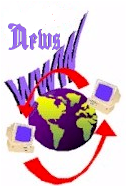
Don't miss these stories about Learning and Online Teaching.
The Reluctant Online Professor
By Cynthia L. Corritore, Ph.D., Creighton University
Cynthia Corritore, associate professor of information technology at Creighton University in Omaha, Nebraska, once had a bad experience translating a college course to the online realm. When the task came around to her again, what did Corritore do? She took the bull by the horns and fashioned an e-learning course so effective, neither she nor her students can imagine taking it back to the non-virtual classroom.
About the Author
Cindy Corritore has a Ph.D. in Computer Science and is an Associate Professor of Information Technology in the College of Business Administration at Creighton University in Omaha, Nebraska. She has been teaching online and onsite for over twenty years, and is very interested in higher educational teaching strategies and human-computer interaction issues as they affect how we learn and work.
Dialogue-Intensive Learning
By Richard Dool, D.Mgt, Assistant Professor, Seton Hall University
The discussion element of an online course, in theory, is the "classroom" where much of the instructor-student and student-student interaction takes place. To a large degree it is intended to approximate the on-campus class experience. But as most online instructors know, the online discussions, if designed appropriately, can far exceed the interactions in the campus classroom.
I have learned, however, that not all online discussions are created equally. In my online experiences—which include teaching in four different online programs as well as completing two master's and part of my doctorate online—I have witnessed three types of online discussions: the "Q&A" model, the "1-plus" model, and the "dialogue intensive" model.
About the Author
Dr. Richard Dool is an educator, consultant and senior executive with more than 20 years of diverse senior management experience including 15 years as a CEO, leading an $800M division of a Fortune 20 company, rescuing a company from near bankruptcy, leading the acquisition or divestiture of 10 companies and managing companies in the UK, Germany, France, Spain, Hong Kong, India and Australia. He is on the faculty at Seton Hall University and teaches in the graduate communication program where he focuses on leadership communication, distance learning and change management.

 According to Martin Dougiamas, founder and main developer of the open source course-management system, "It is still being polished". Testers and developers are invited to join the finalizing process.
According to Martin Dougiamas, founder and main developer of the open source course-management system, "It is still being polished". Testers and developers are invited to join the finalizing process.

































